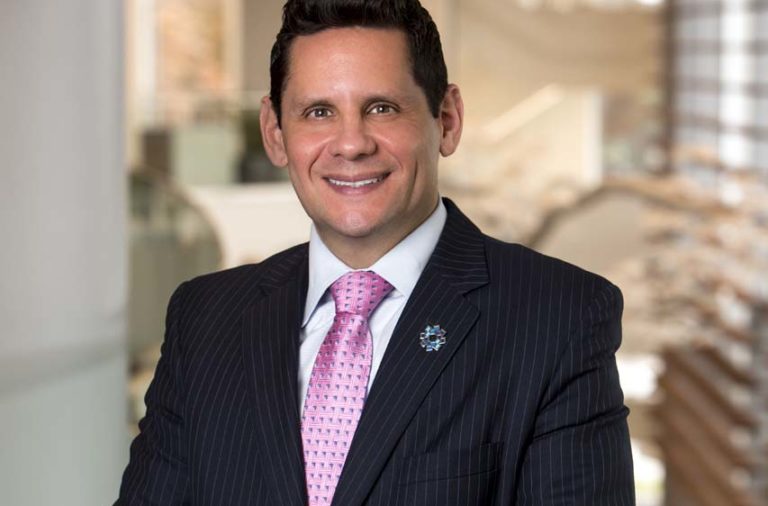A NJ HEALTHCARE NETWORK REORGANIZES TO ALIGN SERVICES AT ITS HOSPITALS AND OTHER PATIENT CARE LOCATIONS
BY JESSICA JONES GORMAN • PHOTOS © AMESSÉ PHOTOGRAPHY
After announcing the implementation of a new organizational structure in October, Hackensack Meridian Health detailed the network’s plans to synergize services and improve the overall experience for patients across its 16 hospitals and 500 patient care locations throughout New Jersey. “This new structure consists of three markets north, central, and south and integrated care transformation services that will help align all of the network’s services around the patient to ensure better coordination and outcomes,” said Dr. Kenneth Sable, who, as regional president of the southern market, will lead Jersey Shore University Medical Center in Neptune, Ocean Medical Center in Brick, and Southern Ocean Medical Center in Manahawkin. Sable, who previously served as the president of Jersey Shore University Medical Center, said the new regional structure will promote Hackensack Meridian Health’s mission of providing care that is “patient centered, accessible, and affordable.”
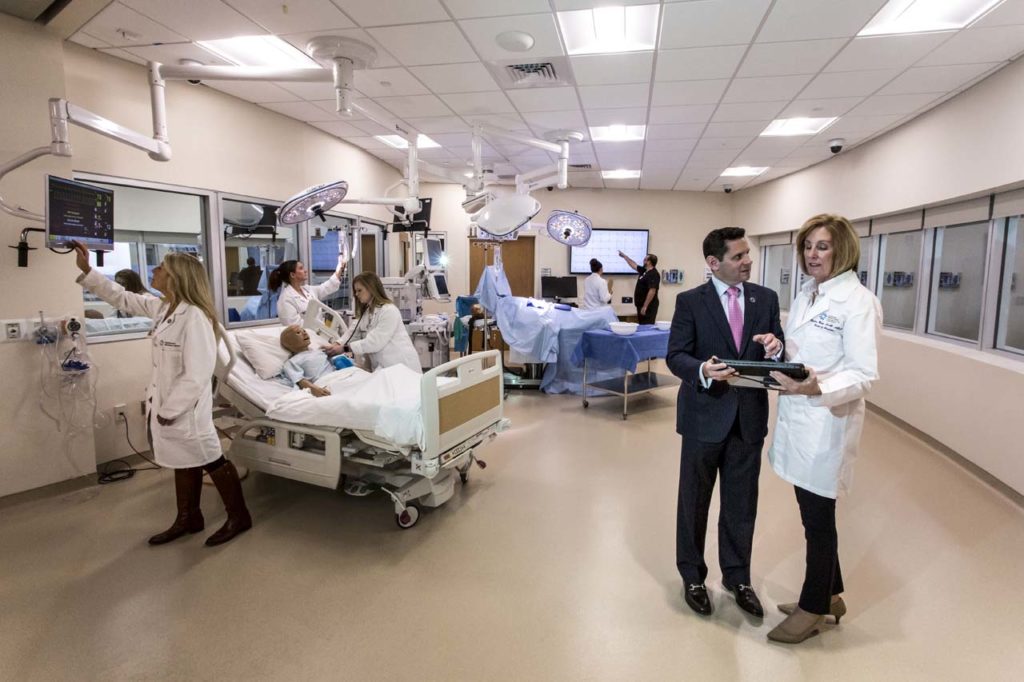
When these two organizations [Hackensack University Health Network and Meridian Health] came together in 2016, their marriage proved to be a natural fit,” Sable said. “Over the past two years, our reach has continued to grow. We are now the largest, most comprehensive, and only truly integrated healthcare network in New Jersey, as well as the state’s second largest private employer, with 33,000 team members, or nearly one quarter of the hospital workforce in the state. Our network reaches two thirds of New Jersey residents.” According to Sable, this regional approach will continue to support that growth.
“At Hackensack Meridian Health, we decided there was a need to make these changes in order to be consistent in our delivery of healthcare,” he said. “As is the case at most other organizations, the fee for service and value based healthcare models are co existing here, and we have to learn how to bridge the gap,” adding that the new approach will allow Hackensack Meridian Health to focus on Care Transformation Services (CTS), which concentrate on patient and family centered care.
“It’s a natural progression as we move to CTS and improve outcomes and patient satisfaction by delivering highly coordinated, integrated care,” Sable said. “It makes sense when you think about our entire shift in focus to investing in wellness as much as we are in treating disease. A lot of care is migrating away from hospitals and into the community.”
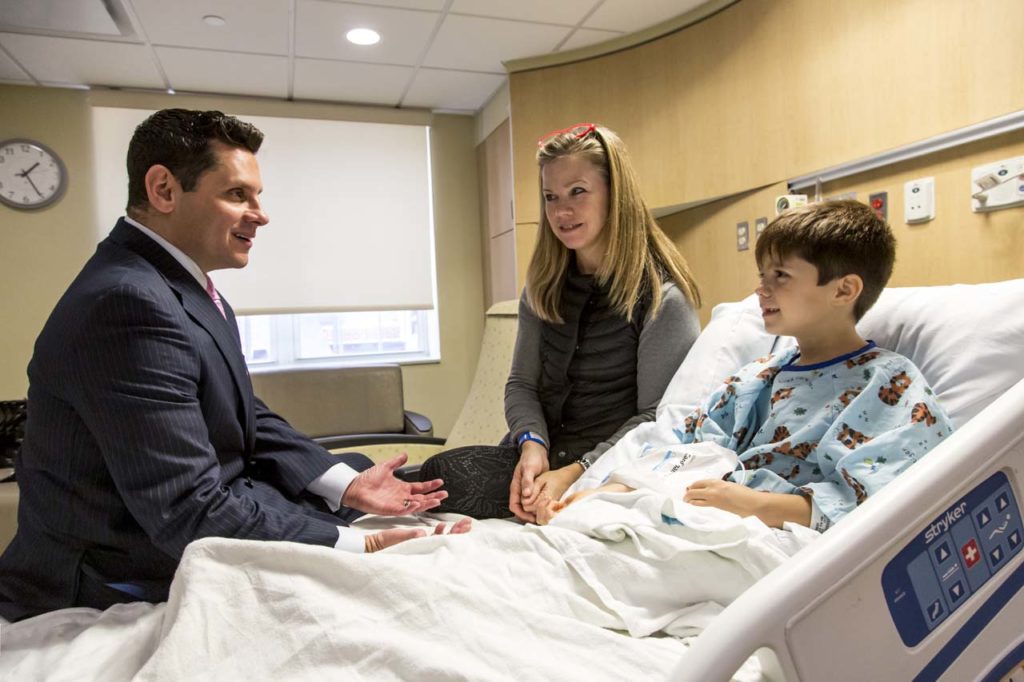
Sable explained that competition from unlikely sources including Google, Amazon, Microsoft, Apple, Aetna, CVS, Berkshire Hathaway, and JPMorgan Chase is the type of disruption in the marketplace that is influencing these changes.
“We look at it this way: innovation and disruption are two sides of the same coin,” he said. “We are innovating. We are disrupting. We are disrupting our own organization with this new structure. For example, we are disrupting medical education by providing a three year pathway to residency through our partnership with Seton Hall University, promoting interdisciplinary learning and focusing on more community based care.”
The partnership with Seton Hall aims to redesign medical education to keep more physicians in New Jersey and to humanize healthcare. Its novel, three year program trains students clinically throughout the entire span of the curriculum.
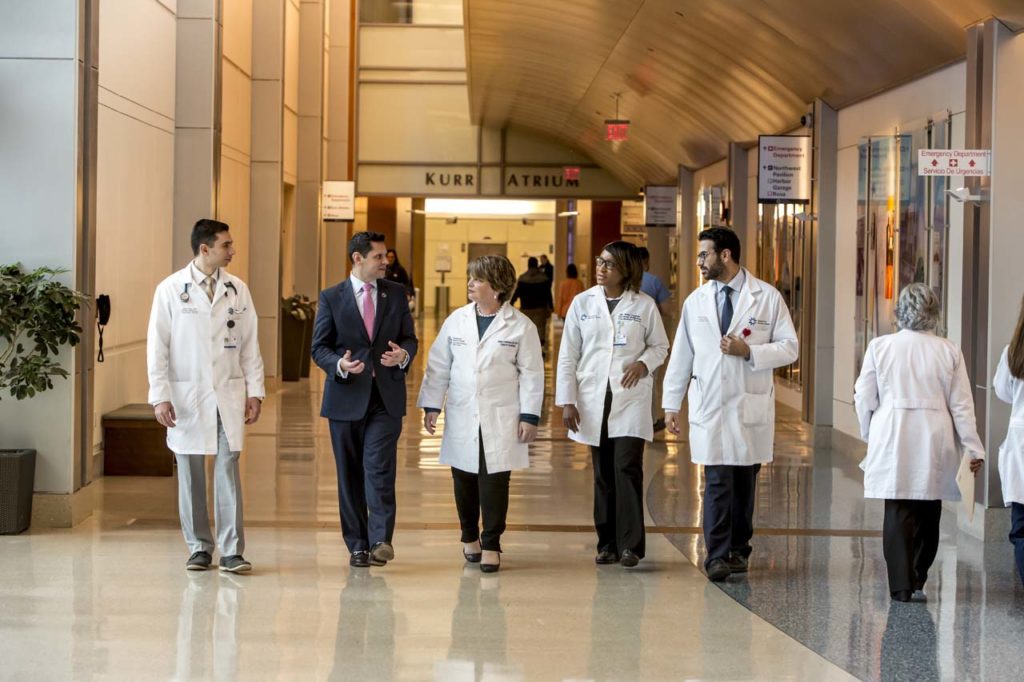
“I am so proud of our new medical school,” noted Sable, who serves as assistant dean for integration. “We already have more than 4,500 applicants for our next class. That’s more than double the amount who applied this year.” Sable, who earned a degree in computer science and engineering from the University of Pennsylvania before applying to medical school, got his medical degree from the Rutgers Robert Wood Johnson Medical School. He did a three year residency in emergency medicine at Cooper University Health Care in Camden before taking a position as vice chair of operations and director of medical informatics in the department of emergency medicine at Maimonides Medical Center in Brooklyn. He also served as executive vice president and chief operating officer for Saint Peter’s Healthcare System in New Brunswick before coming to Jersey Shore University Medical Center in 2014.
“Over the past four years, I feel that we as a team have made great strides, improving the quality of care we deliver to patients,” Sable said of his time at Jersey Shore University Medical Center. “We’ve reduced unfavorable variances in clinical care and have seen significant improvement in the reduction of hospital acquired conditions. As a result, we’ve achieved a Leapfrog Hospital Safety score of A, been ranked as one of New Jersey’s top four hospitals, and been named No. 12 in the entire tri state region. But I think what I am proud of most is having a great group of people providing great service to the residents of New Jersey. It’s my job to ensure that care at each of those hospitals is coordinated and aligned, not just within the region but across the entire network as well. Traditionally, there is a specific culture at each individual hospital, but it is the goal of Hackensack Meridian Health to provide seamless, high quality experiences throughout all of our locations.”
Sable said that’s why Hackensack Meridian Health also partnered with Memorial Sloan Kettering Cancer Center.
“The goal is to better serve our patients by providing one, unified standard of care the most cutting edge clinical trials, the most advanced treatment protocols, and the greatest chance for recovery,” he noted.
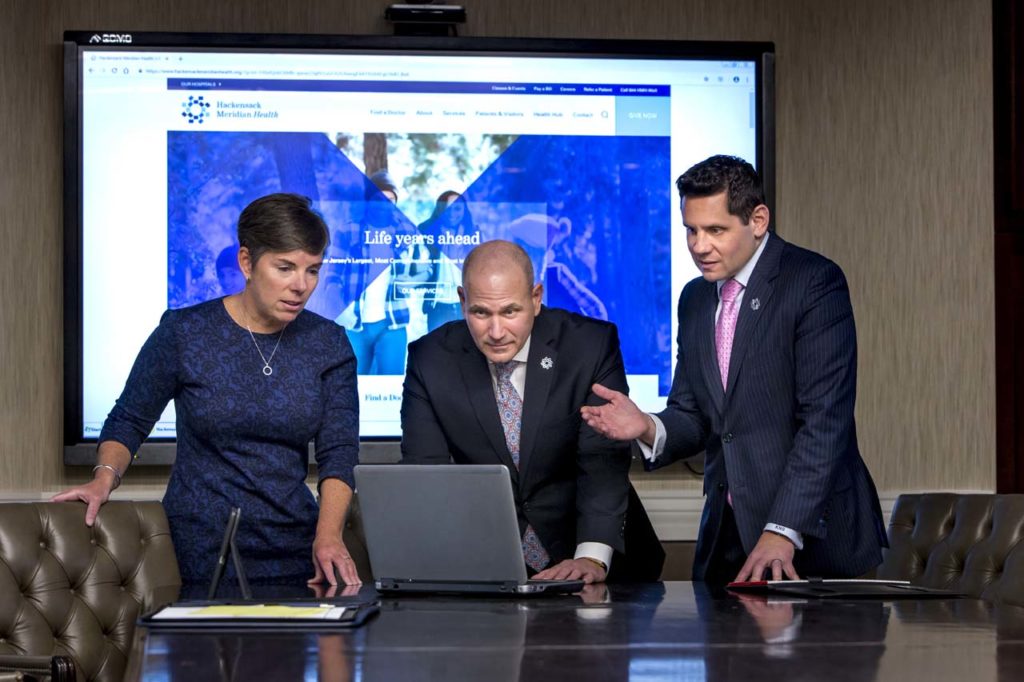
He expressed confidence that the southern market, and the entirety of the Hackensack Meridian Health network, will achieve further success.
“We have positioned the southern market to be nimble to adapt to dramatic changes in healthcare, to grow our services, and to make care more accessible, affordable, and always of the highest quality,” he said.
Hackensack Meridian Health
844.464.9355 / hackensackmeridianhealth.org


